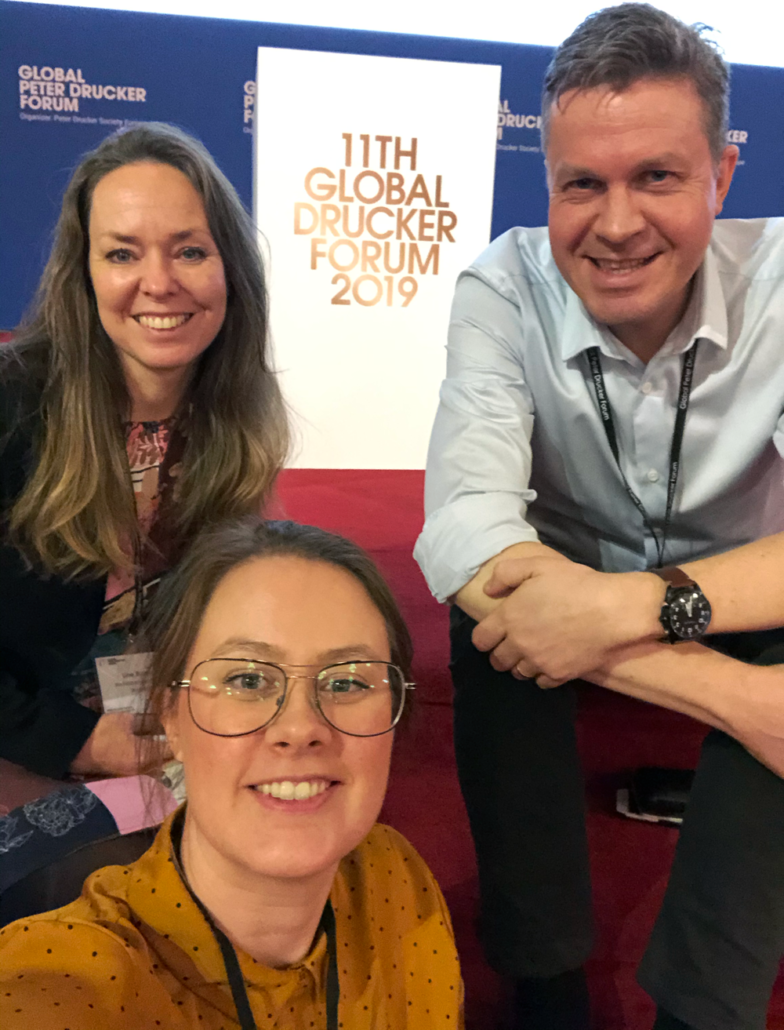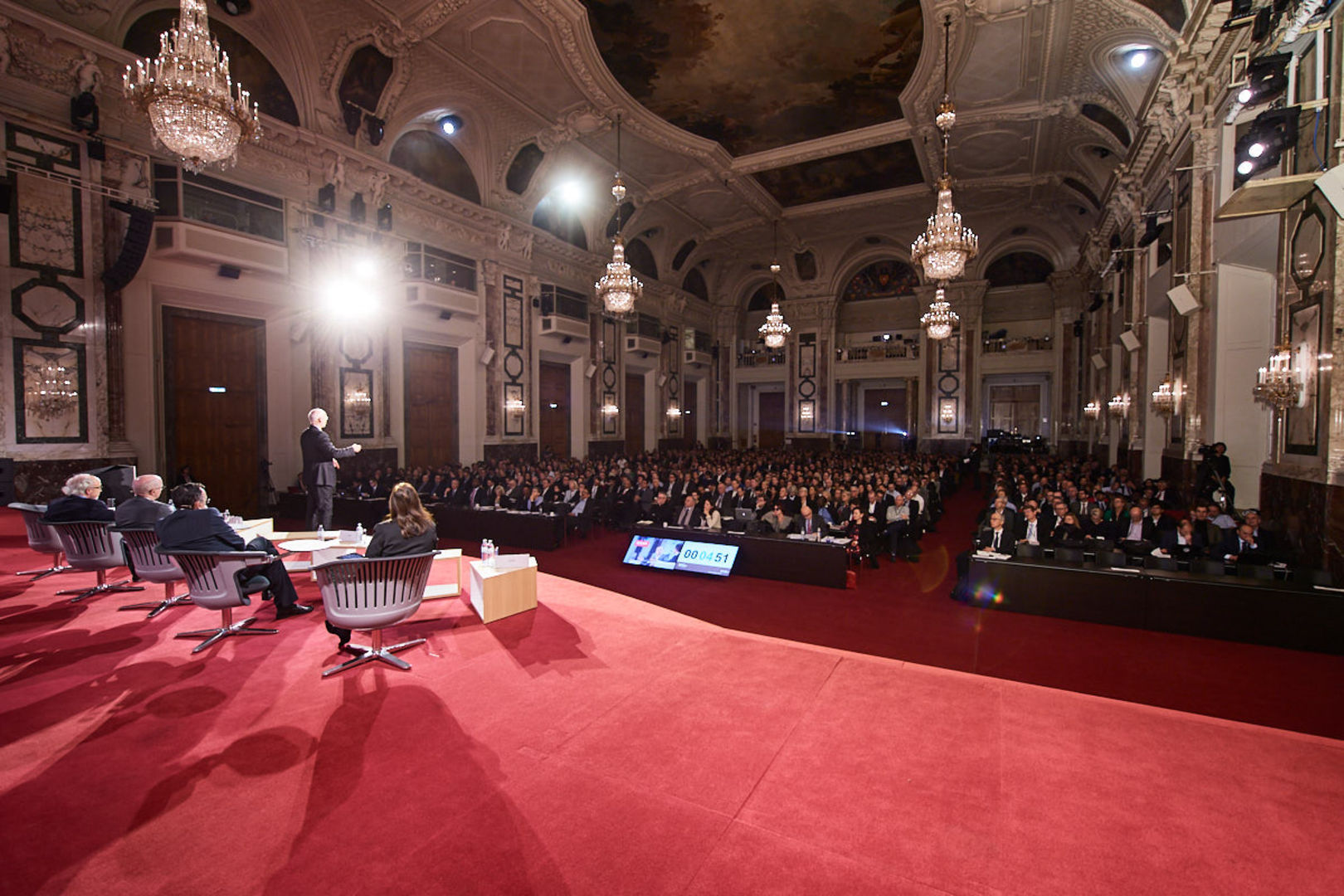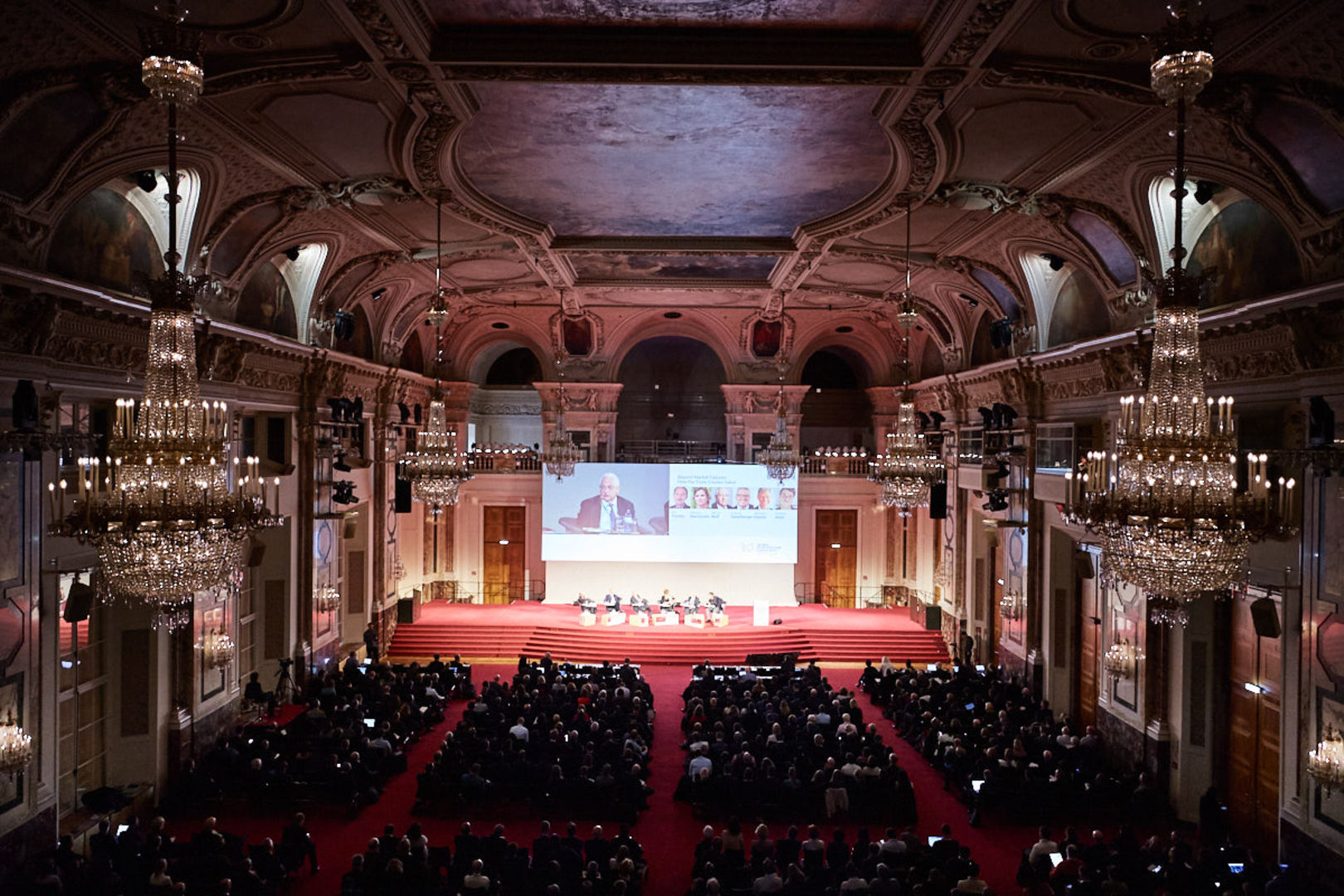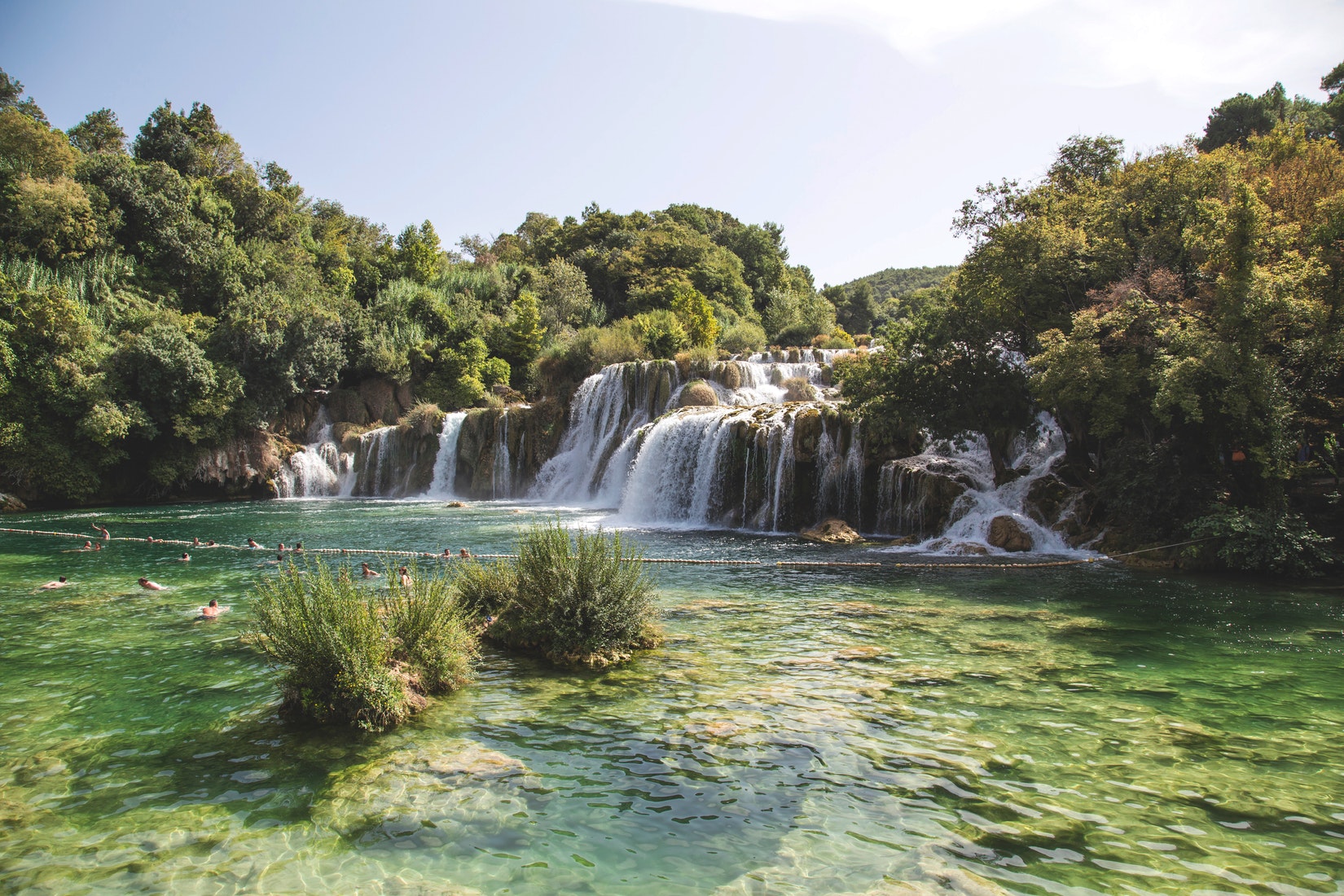Special: Global Peter Drucker Forum 2019
By Puk Falkenberg, 23. November 2019
The power of ecosystems – managing in a networked world
Attending Global Peter Drucker Forum always sparks a lot of ideas and thoughts. It’s food for the brain! This year was no exception. Even though there weren’t as many “fire speeches” as last year, the talks did give insight on the power of different ecosystems as well as challenges, risks, problems and how you as a leader should lead your ecosystems to achieve greatness – and why.
Let’s start with the ecosystem and get some definitions in place.
A networked world: what’s an ecosystem?
Everything is connected. Your local ecosystem is merely a confined part of the world, with multiple parts interrelated and integrating with each other. The question is whether you create or discover your ecosystem. A place to start could be defining your “world” of your ecosystem as well as the actors in it. Then describe the mechanisms and interfaces within, how they interact, and why. View this ecosystem as your brand.
As Zhang Ruimin, CEO of Haier group told us, it’s about viewing the whole ecosystem and not only our own products. They are going from mass production to mass consumerization within the whole ecosystem. They move away from products to use case scenarios.
Digitalization is one of the underlying elements of the ecosystem, either as a premise for structure, communication, production or delivery. Digitalization can help companies to be flatter organized. Understanding data, can make it smarter. Technology, data and the ongoing digitalization have made it possible to flatten our organizations, removing layers of middle managers and creating a networked organization. Remember: Don’t digitalize for the past, innovate for the future. And related to that: Amy Webb said, that data collected has more value than the transaction itself.
Sure, there is a difference in a company being born digital rather than becoming digital. And a networked organization is easier to build from scratch than to transform into. But that doesn’t mean it is impossible. At the Drucker Forum there were many examples on this type of organization; Buurtzorg, Haier and Tencent were the ones that stayed with us the most.
Here are the one-liners and take-homes
We got tons of input on the conference, but here is, in one-liners, what you should do to succeed in this “Era of the Ecosystems”
Understanding why to embrace ecosystems – and what problems they solve
- In a complex high-tech ecosystem, we need more human and high-touch skills to be able to go forward.
- Ecosystems build a better society, as it creates value through relationships and dependability
- Ecosystems focuses on stakeholder value rather than shareholder value.
- Ecosystems put people at the center / people first.
- Ecosystems focuses on social entrepreneurs rather than tech-entrepreneurs.
- Ecosystems thrive when there is low competition and an abundance of collaboration.
Good advice on mindset and concrete actions
- Biggest challenges moving forward towards ecosystems are: 1) Isolation in teams, silos or as individuals, 2) lack of generosity, 3) meaningless work to talents as they will seek meaning other places, and 4) lack of learning important skills as how to create psychological safety, trust, collaboration etc.
- We need to help a mindset shift and then educate in the new skills.
- 80% of leaders are reactive. – be proactive.
- Be actors, not victims
- Trust is the new “thing” now that we have purpose in place.
- The critical dimension in creating and nurturing the ecosystem within the organization is psychological safety.
- Make the least powerful person in the room feel safe to speak up.
- The most powerful person in the room should speak last.
- Establish a combination of opposites: both belonging and freedom, alikeness and uniqueness, alignment and autonomy.
- Get/find clarity of your boss’s challenges and your own. Are you fighting the same fight?
About your leadership and your personal traits
- Understand that “the soft stuff” is the hard stuff
- Be teachable
- Be human
- Be together
- Be present
- Be curious
- Be aware that you do not know it all
- Remove fear
- Remove power
- Be in dialogue
- Have social skillset
- Have EQ
- Listen. Ask: what do you hear?
- Show empathy
- Be selfless
- Be idealistic
- Be accountable
- Lead and listen
- Be you
On design principles
- The ecosystem can be driven by challenges and problems. People gather to solve them.
- Leadership is support of the teams when in a networked-based organization.
- Leaders need to lead through influence.
- Leadership is the art of harnessing the efforts of others to achieve greatness.
- Ecosystems (and networked organizations) require us to me masters of teaming.
- We must find quiet time to reflect and learn on how we are impacted.
- We need to understand oneself to be able to understand our impact on others in our ecosystem.
- Most important people skills: Curiosity, compassion, love, self-direction, capability to embrace interconnectivity.
And a great note on skills and learning: “I’m not worried about the young people. They will manage. I’m worried about the people in their 40’s and 50’s, that have worked as white collar all their lives. They need to learn new skills” – Tony Tan Keng Yam.
Go to the edges of your map
You are not alone. Many opportunities are hiding in plain sight and you don’t have to change everything. You just need a willingness to tap into the existing ecosystems around you, share and learn, and create values with those that choose to be in your ecosystem.
The pace of change will never again be this slow. And we must view our organization not as a map with fixed boundaries but rather as a map of exploration with empowered functional teams. As Rita Gunther McGrath closed this year’s forum with: “Go to the edges and see the weak signals. This is where the future starts to appear”.
What is Global Peter Drucker Forum?
Global Peter Drucker Forum is a conferences organized by Peter Drucker Society Europe and always held in november in Vienna, Austria. We have been attending since 2017 and it’s the one conference that we always return to. The inspiration, insight, knowledge, cases and questions you get from attending is overwhelming. It takes a couple of days and weeks to process everything that’s been said and told at the conference. These blog posts are out attempt to translate and reflect on what we have experienced.
This years conferences was about ‘The Power of Ecosystems – Managing in a networked world’ and was held from the 21. to 22. november 2019. If you want to know more about the conference, see previous years content or find photos and blog posts, we suggest you visit the webpage druckerforum.org.
